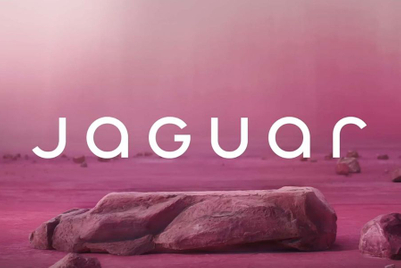
Just five years ago, China’s luxury auto market was dominated by the German big three of Audi, BMW and Mercedes-Benz. Today it has mushroomed to nearly 100 models offered by 25 brands.
At the 2014 Beijing Auto Show in April, 45 luxury vehicles were on show, 15 of them appearing for the first time.
In China’s top-tier cities — Beijing, Shanghai, Guang-zhou — licence-plate lottery restrictions mean they are so hard to come by, people tend to want to maximise the “face value” of the car they own.
With many first-time Chinese luxury customers less knowledgeable than their peers in other markets, choice of model is first and foremost an expression of social status, according to Guillaume Saint, managing director of automotive practice at TNS APAC.
Simon Wang, general manager of GfK China’s auto sector research, sums up the thoughts of the typical Chinese luxury buyer as: “I don’t just want to own a luxury brand that is different from others, I want to own a model that is different.”
Because there may not be so many points of differentiation between one model and the next, brands rely on marketing gimmicks and sales channels to meet that demand for variety. A Maserati Gran Cabrio Fendi limited-edition model, for example, was sold through the Glamour Sales flash sales website. Citroën-owned DS ran a crowdfunding campaign on WeChat for its DS 5LS, with the automaker paying 100 yuan (US$16) to a potential car buyer for every 1 yuan raised from friends. This use of online and mobile platforms for luxury car sales is a major departure from the traditional, experiential-marketing approach.
GfK’s Wang points out the shift to online channels is a natural one, triggered by changing habits of consumers less likely to spend time looking around showrooms than they were five years ago.
“The decision-making journey from awareness to purchase of a luxury car used to take as fast as one day,” Wang says. But the sheer number of luxury options available makes such snap decisions increasingly rare.
The anti-corruption clampdown has forced people to become more cautious about conspicuous displays of wealth, whether in the government or corporate sectors in China. “Even if they have the money, they dare not spend it,” says Wang.
This explains the rise of the “mass luxury”, according to a June 2014 report by Exane BNP Paribas. Entrants like Infiniti, Lexus, Volvo and Cadillac have sought to grasp this “material opportunity” by pursuing growth through dealer expansion.
The ostentatious displays of wealth favoured by the first waves of China’s new middle class have also fallen out of fashion as they seek to avoid being seen as “tuhao” — uncultured nouveaux-riches.
This demise of the luxury overstatement is accompanied by a new appreciation for branded ideals, says Michael Griffiths, expert in cultural insight and strategy at TNS China. He cites a BMW drivers’ association in Beijing that was not just about VIP membership but about car-sharing and weekend drives to visit orphanages and retirement houses in Inner Mongolia.
“The association wasn’t about BMW as we know it: consumers had written themselves and their ideals into the brand and fashioned the brand meaning anew.”

EXPERT OPINION Brand experiences as an extension of consumers’ lifestyles
Bryn Powell, head of automotive, Greater China, Imagination
Due to China’s insatiable economic growth, increasing personal income and urbanisation, the demand for luxury cars is booming. But foreign and local brands are facing an increasingly challenging market with consumers becoming more sophisticated in their purchasing habits, having higher expectations, and arming themselves with detailed understanding.
One key driver in the growth of luxury cars is a combination of functionality and emotional value. That is something that foreign brands have worked on for decades in other emerging markets, while local Chinese brands are still struggling to establish their brand voice and personality.
A new generation of Chinese buyers are no longer buying luxury cars simply to reflect their social status through price and brand logos. It’s critical for auto brands to acknowledge this change and create more meaningful conversations with consumers.
The auto market in China is coming of age, and consumers are too. No longer just concerned with price and function, Chinese consumers want brand experiences that reflect ‘lifestyle presence’.
They want to project outwardly to peers and inwardly to remind themselves of their own aspirations. Brands such as Jaguar are increasingly focusing their attention on engaging with customers and bringing their brands to life through bespoke experiential marketing — essentially, promoting what it means to be a part of a brand, not just own a product.




.jpg&h=334&w=500&q=100&v=20250320&c=1)
.jpg&h=334&w=500&q=100&v=20250320&c=1)
.jpeg&h=334&w=500&q=100&v=20250320&c=1)
.jpg&h=334&w=500&q=100&v=20250320&c=1)
.jpg&h=334&w=500&q=100&v=20250320&c=1)
.jpg&h=334&w=500&q=100&v=20250320&c=1)






.jpg&h=268&w=401&q=100&v=20250320&c=1)


